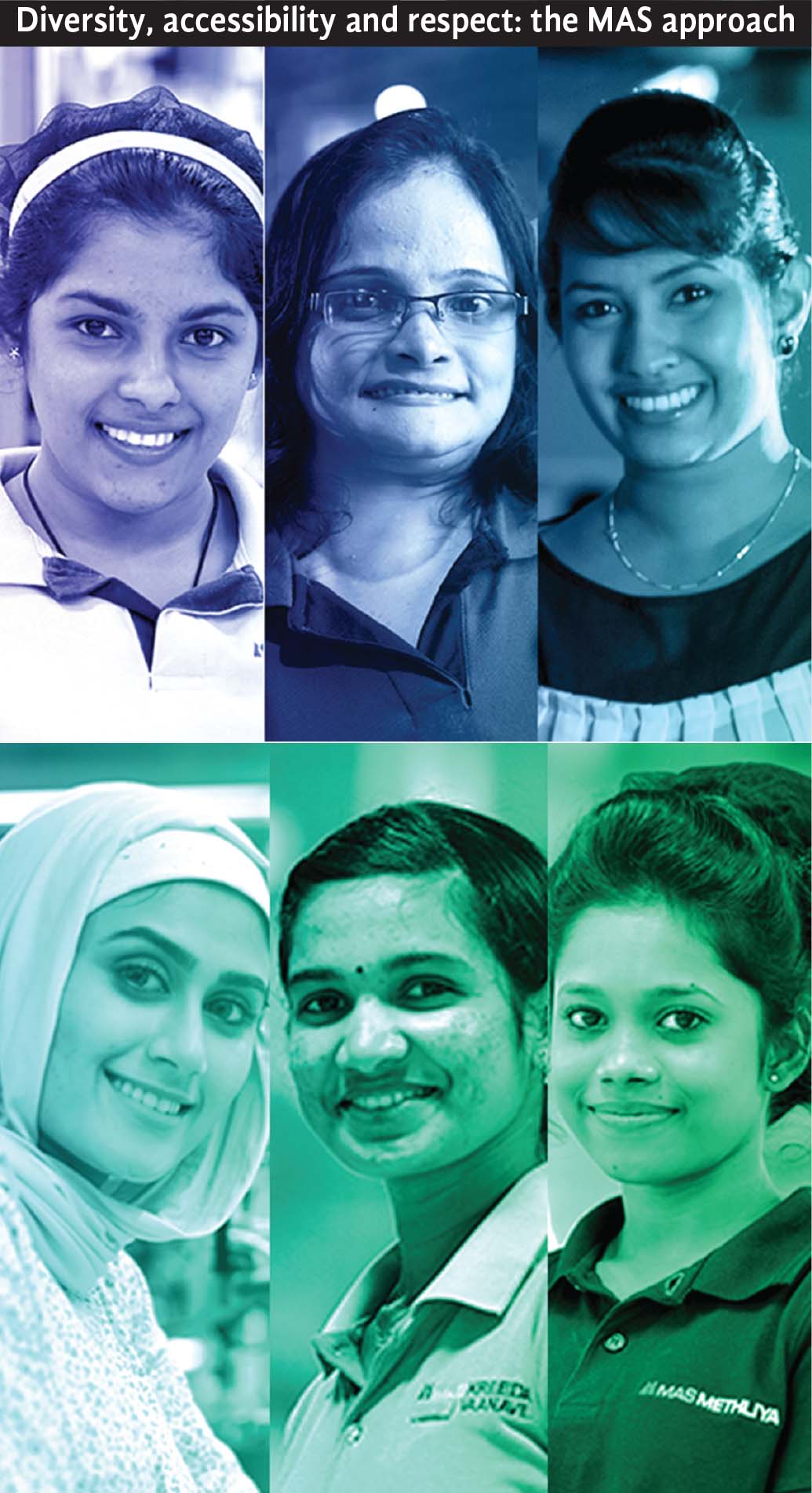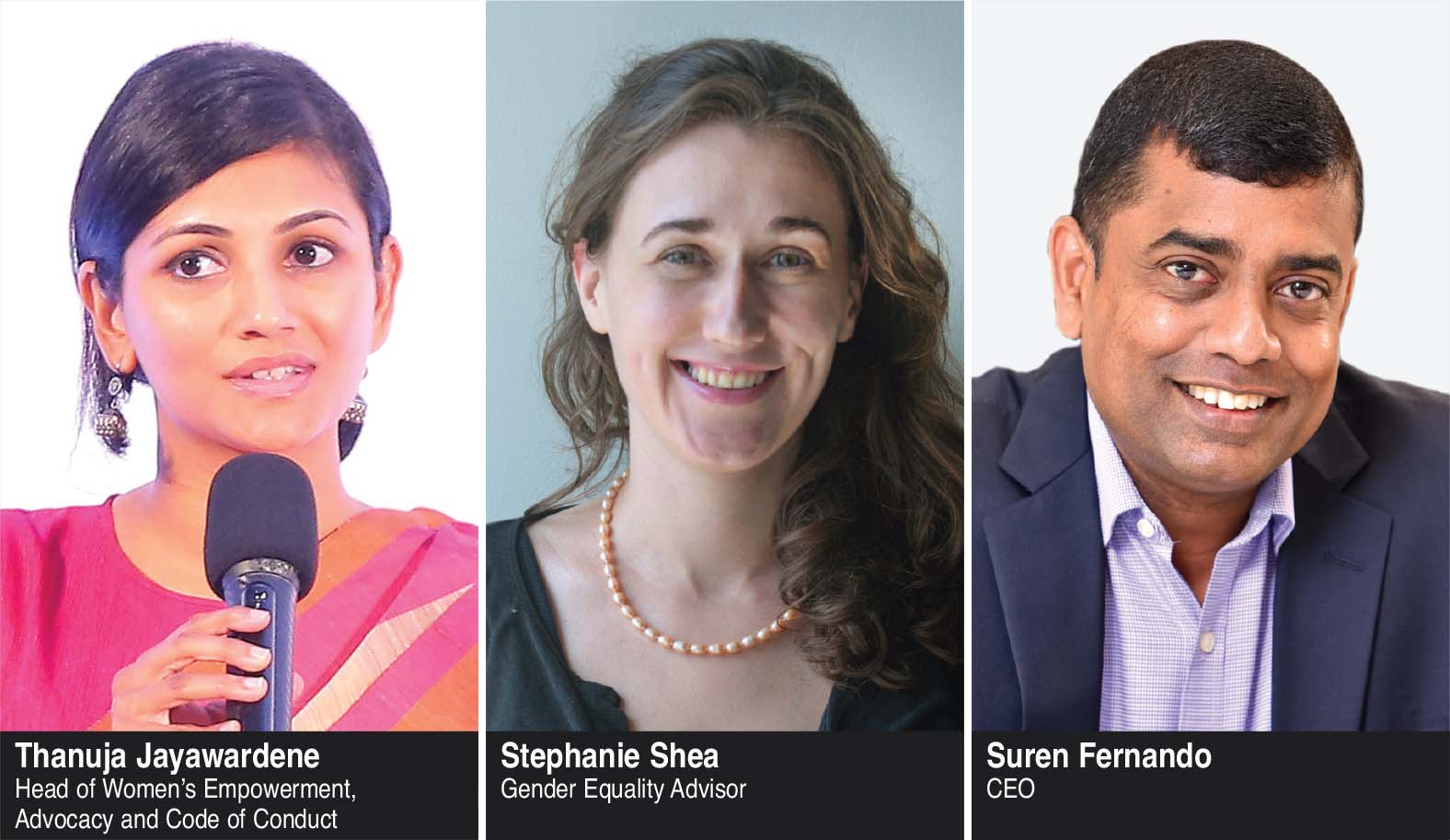MAS HOLDINGS
Q: How does MAS Holdings look to empower its female employees?
A: MAS pilots an ambitious programme of initiatives to increase diversity in the workplace, focussing on building women’s representation in management and senior leadership.
MAS is globally recognised as an industry leader in workers’ rights, health and safety, and ethical manufacturing. Given that more than 70 percent of the apparel industry’s workforce is female, MAS launched Women Go Beyond (WGB) in 2003 as an inclusive empowerment programme to make a difference in the lives of its female employees, their families and communities by empowering them in the workplace and at home.
While a tremendous amount of work has been done to educate, empower and support women’s progress, the MAS group – driven by its shareholders and senior leadership – identified the need to increase the representation of women in management as a critical social sustainability goal and set an aspirational goal of 1:1 gender representation by 2025.
Q: Could you outline the importance of diversity in the workplace?
A: There has been a global shift in understanding the business case for diversity. Research organisations and think tanks have identified clear connections between diversity in leadership, and improvements in business performance, resilience in times of financial turbulence and the financial benefits of better connectivity to target end users.
When a majority of global consumers are female, having women in decision making becomes a business need.
For MAS – especially in the apparel industry, which is driven by a female workforce and largely caters to female consumers – better representation in management and senior leadership is an important driver.
MAS Holdings’ Head of Women’s Empowerment, Advocacy and Code of Conduct Thanuja Jayawardene explains that increasing women in leadership is not only the right thing to do but it also makes business sense.
While MAS has always taken pride in its non-discrimination policies and practices, we’re on a journey to identify how we can actively bridge the gender gap in leadership. It is the result of historical reasons and ideologies, and if we do not actively work to change them, the shift in representation will not happen organically.
Q: What are the major barriers to women’s participation in the workforce?
A: Many barriers to women’s participation in the workplace seem unsurmountable. Maternity leave and the uneven distribution of household labour impact women across the globe, and Sri Lanka in particular is family oriented.
The most meaningful step taken by MAS has been adopting a problem solving mentality. We are developing our childcare facilities, providing flexible work arrangements, offering paternity leave, and continuously looking to improve our infrastructure to support women and men, to encourage them to stay and grow in the organisation.
If one demographic is systematically flowing out of a company’s talent pipeline, it’s likely to lose brilliant people. We wanted to identify the common causes of how and why good people quit their jobs, and how to address them.
Q: What measures has MAS taken to address gender gap in leadership?
A: The most challenging – and probably the most important – step of MAS’ diversity strategy was developing meaningful programmes to identify and address unconscious bias in the workplace. Everyone has preexisting beliefs and assumptions, and we’re often exposed to and work with colleagues from different backgrounds.
The gender gap in household labour and self-selection of women entering the workforce contribute to the gap in leadership but challenging preconceptions is needed to close it. To this end, an important aspect of MAS’ strategy is delivering unconscious bias training to everyone with direct subordinates.
In partnership with the Uniterra programme, Gender Equality Advisor Stephanie Shea has been developing trainers across the organisation. These trainers work with colleagues to provoke meaningful discussion, answer questions and initiate conversations about how people can stand up for each other in the workplace – against bias, bullying and harassment.
MAS also launched mentorship and sponsorship programmes for women. These initiatives focus on connecting young executives and women in middle management with leaders in the organisation to support, guide and actively push for their growth and development.
We are also looking at recruitment policies to combat biases and attract talent to job roles that currently lack female participation, communication policies, and training and development structures. We’ve deployed resources and teams to focus on this, and partnered with global organisations to draw on their expertise and collaborate on best practices.
As MAS Holdings’ CEO Suren Fernando notes, empowering women at work strengthens teams and businesses, communities and countries.
MAS is working on many diversity and inclusion interventions. However, we feel that a focussed approach to increasing women in management and leadership is necessary, to address specific needs and launch meaningful interventions. Additionally, we believe that our efforts in this space will make MAS a more open and inclusive organisation, and prompt broader mindset changes in our communities.





